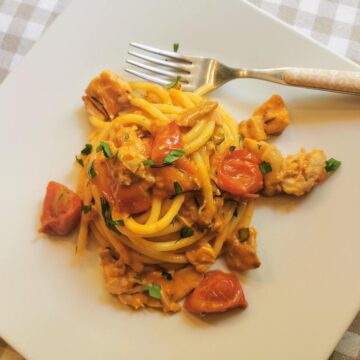Bucatini con coniglio all’Ischitana
The first time I ate pasta with braised rabbit wasn’t actually in Italy, but on the Mediterranean island of Malta. There, rabbit is a very traditional food, usually served with spaghetti and/or as a main course. The Maltese often start with pasta dressed with the sauce from braised rabbit. Then they have the pieces of rabbit with chips and vegetables after!
I recently discovered that almost the exact same tradition exists on the island of Ischia, off the coast of Naples in Campania. Although the recipe for cooking the rabbit in Malta is different to how they make it in Ischia, both are delicious!
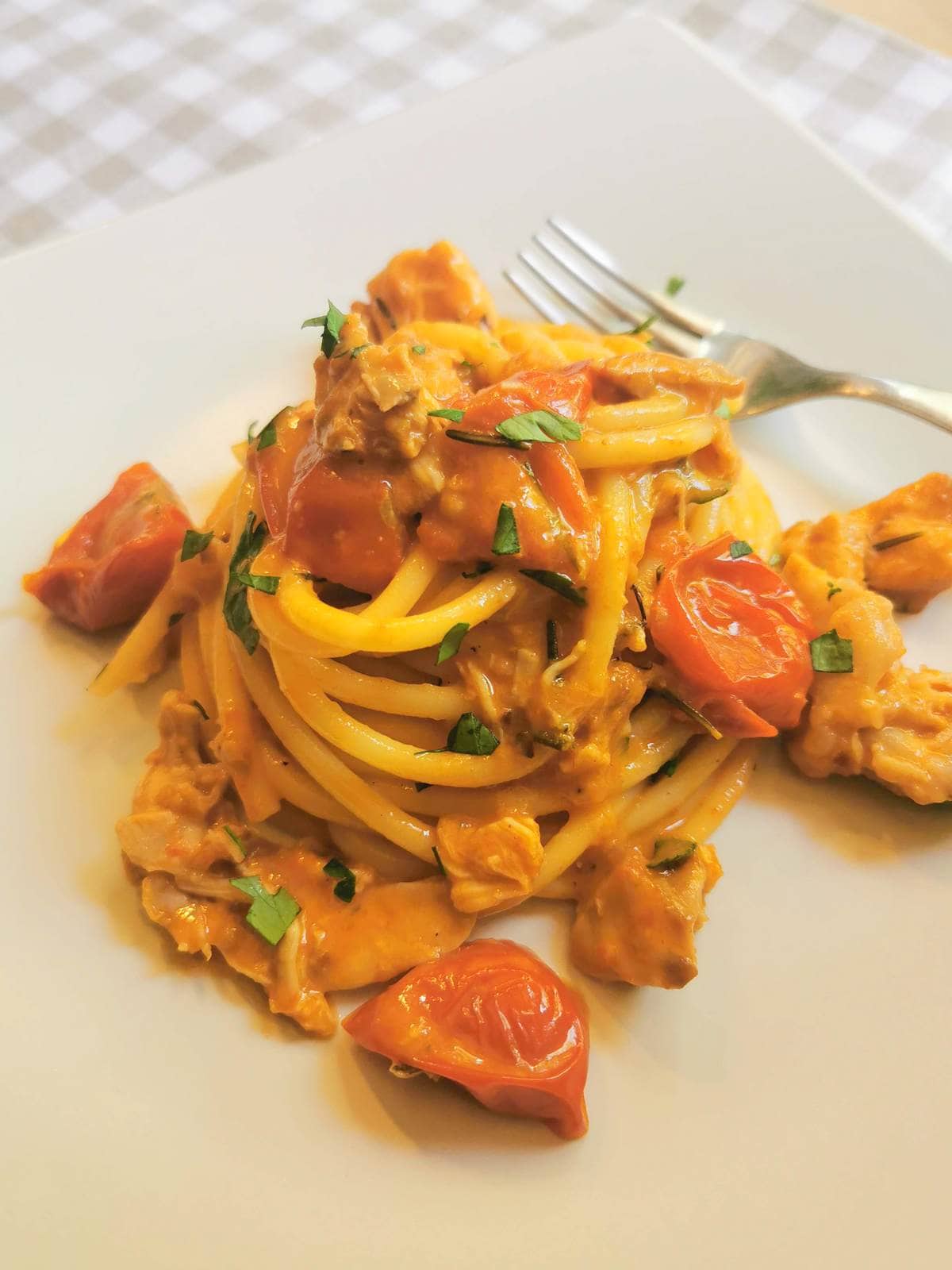
Rabbits on the island of Ischia.
Apparently rabbits were introduced to the island by the Phoenicians and quickly became an important food source for the islanders. Originally the rabbits were wild, but in time the islanders started to farm them.
The traditional way to breed rabbits in Ischia is to let them live in a semi-wild environment in ditches with narrow tunnels. These tunnels run 3 or 4 metres underground and the rabbits dig them themselves. Rabbits bred with this method are called “Conigli di fossa” (meaning ‘ditch or cave rabbits’).
Today ditch or cave rabbit is a Slow Food presidium.
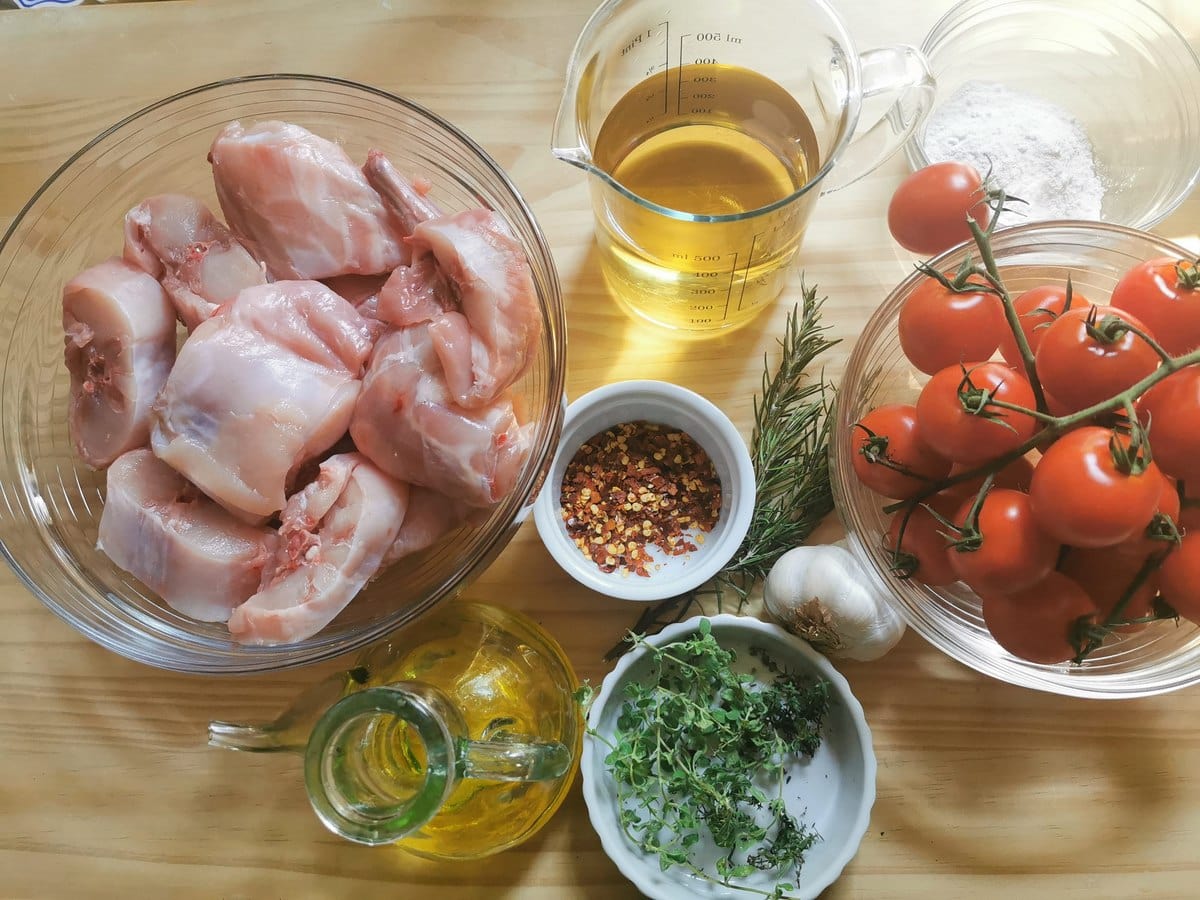
Coniglio all’ischitana.
The oldest and most well-known recipe for cooking rabbit on Ischia is called, unsurprisingly ‘coniglio all’ischitana’ (meaning Ischian rabbit). This dish, which is considered the signature dish of Ischian cusine, involves braising or stewing rabbit pieces in wine with herbs and tomatoes.
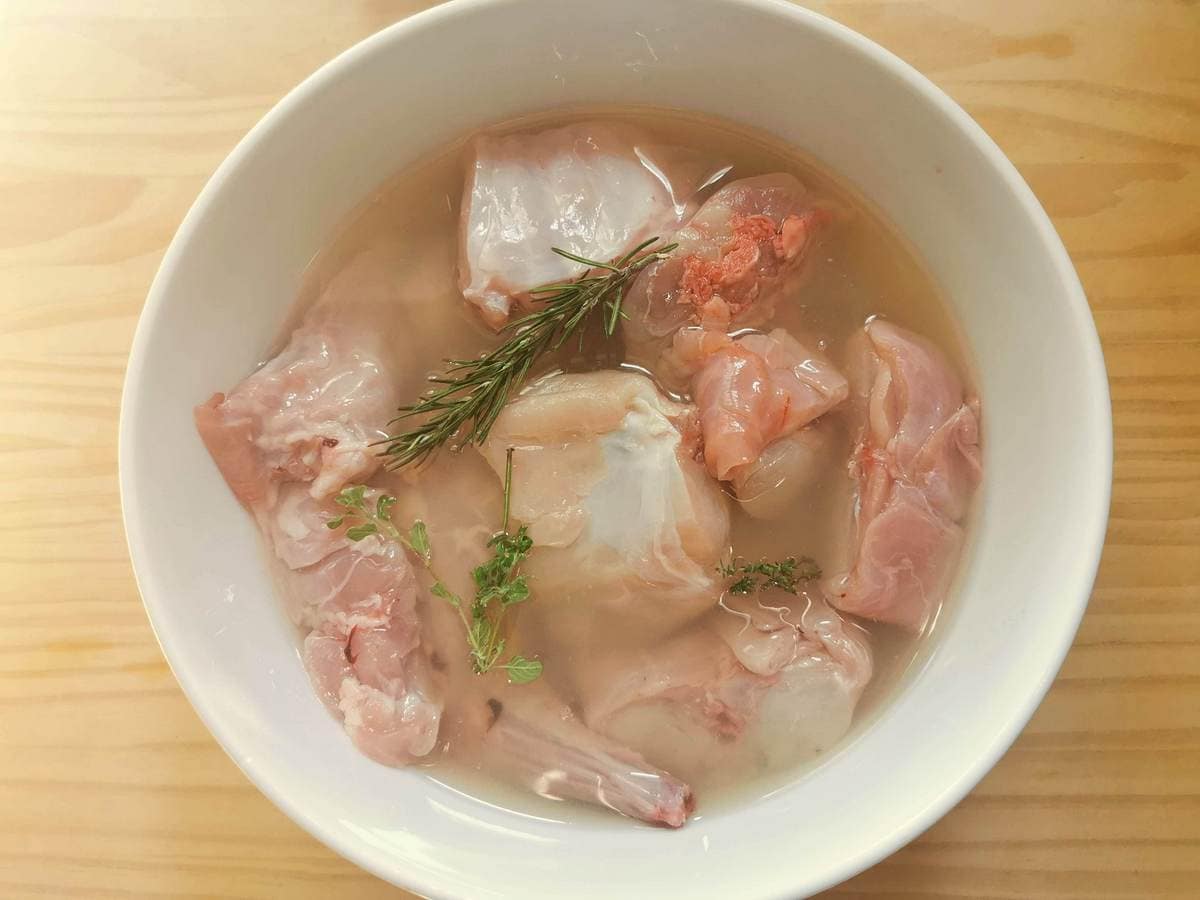
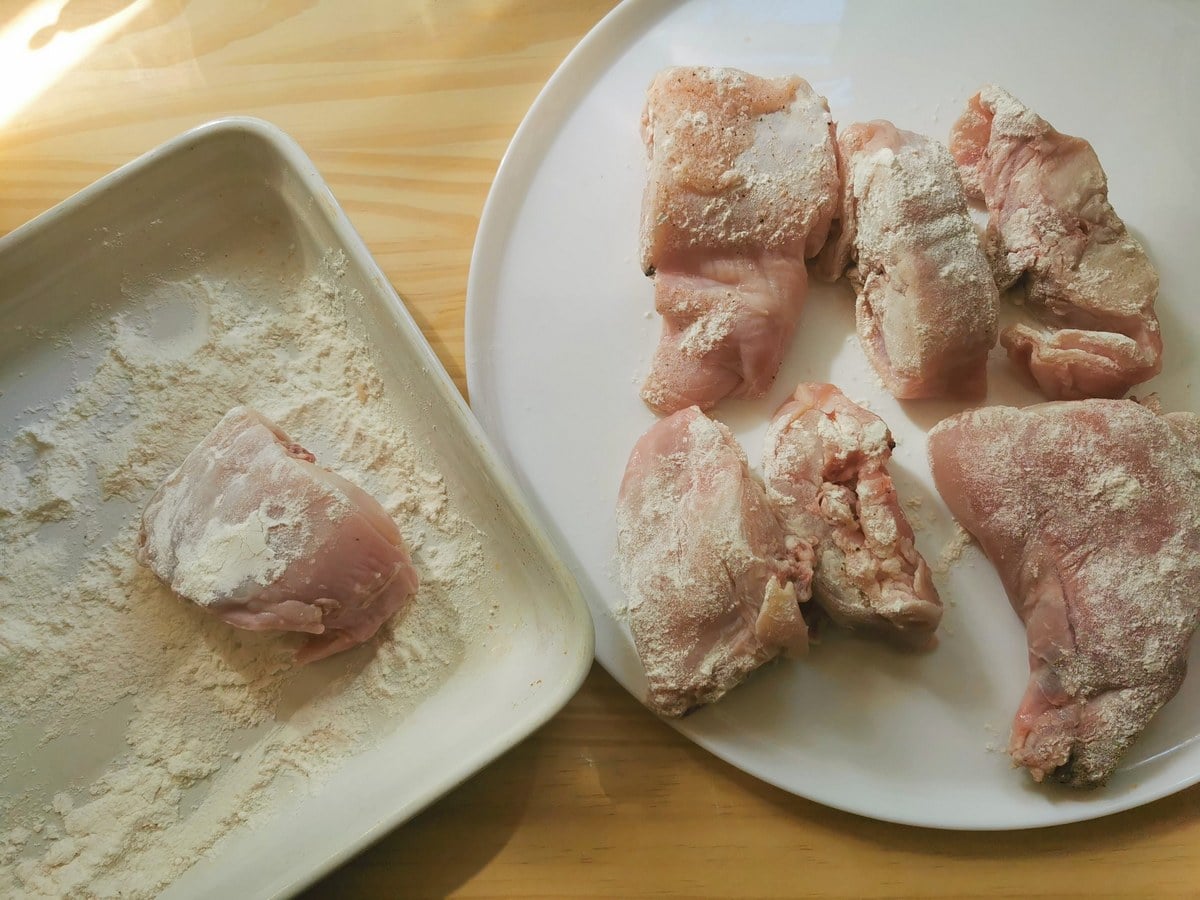
On Ischia, the rabbit braising sauce is traditionally served with bucatini pasta as a first course (primo piatto). The rabbit pieces are then eaten afterwards along with fried potato slices.
However, a number of Italian recipes I found also suggest adding some of the rabbit meat to the sauce to give it more body and serving the pasta along with extra pieces of rabbit if you’re not planning to have a second course. This is what I did.
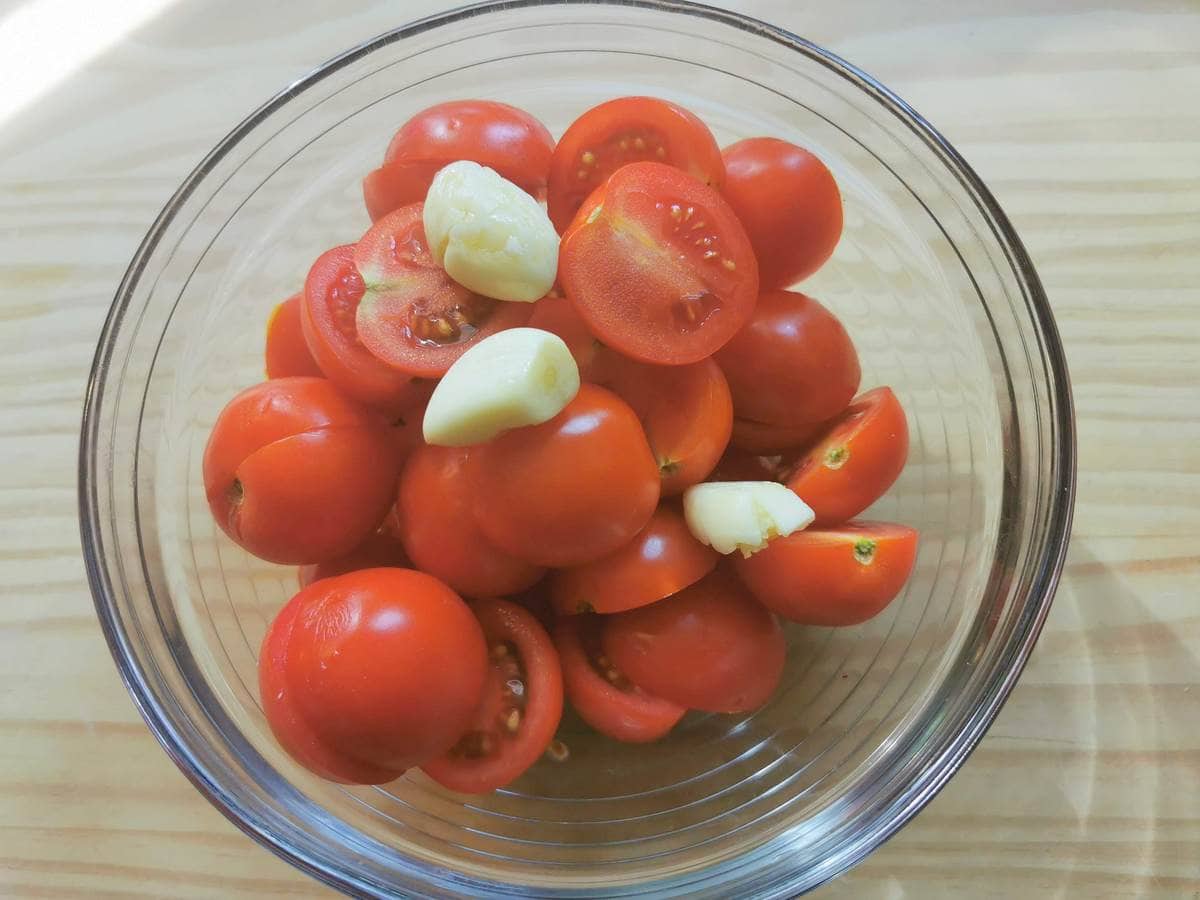
Ingredients for braised rabbit ragu.
Rabbit: You can use a whole rabbit which you will need to joint yourself or ready-jointed rabbit pieces. Even just rabbit legs work fine.
Aromatics: This recipe calls for garlic, red chili flakes (peperoncino) and fresh parsley, rosemary and thyme or marjoram. You can use dried herbs instead and leave the chili out if you prefer.
Cherry tomatoes: Use deep red ripe tomatoes for the best flavor. If fresh cherry tomatoes aren’t available, other small tomatoes like datterini are perfect too. Alternatively, canned peeled cherry tomatoes are a good substitute.
White wine: The rabbt pieces need to be marinated in white wine for at least a couple of hours before making the rabbit ragu. I used a Soave wine from the area I live in but any dry white wine works.
Flour: All you need is a little white soft wheat flour to roll the rabbit pieces in before frying them. I used Italian ‘oo’ flour. All purpose flour is fine instead.
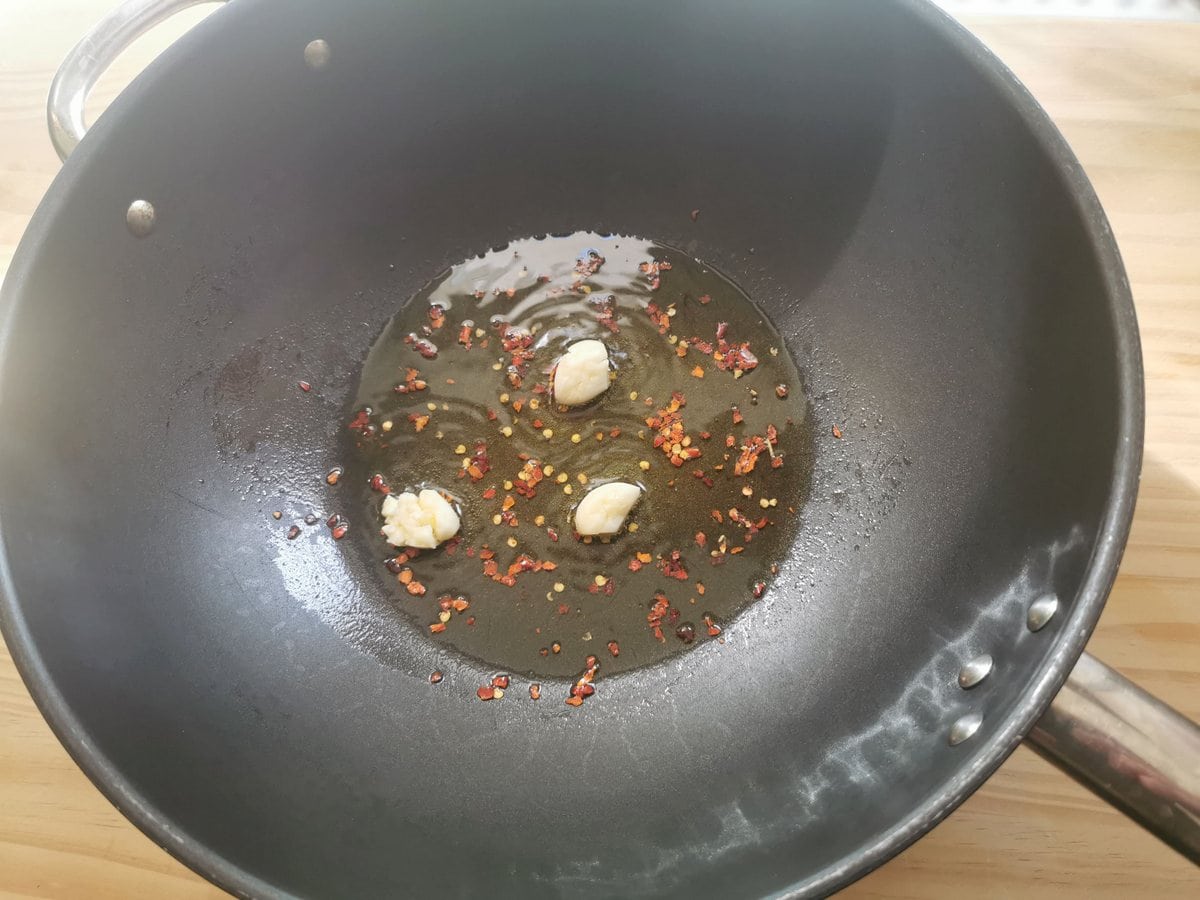
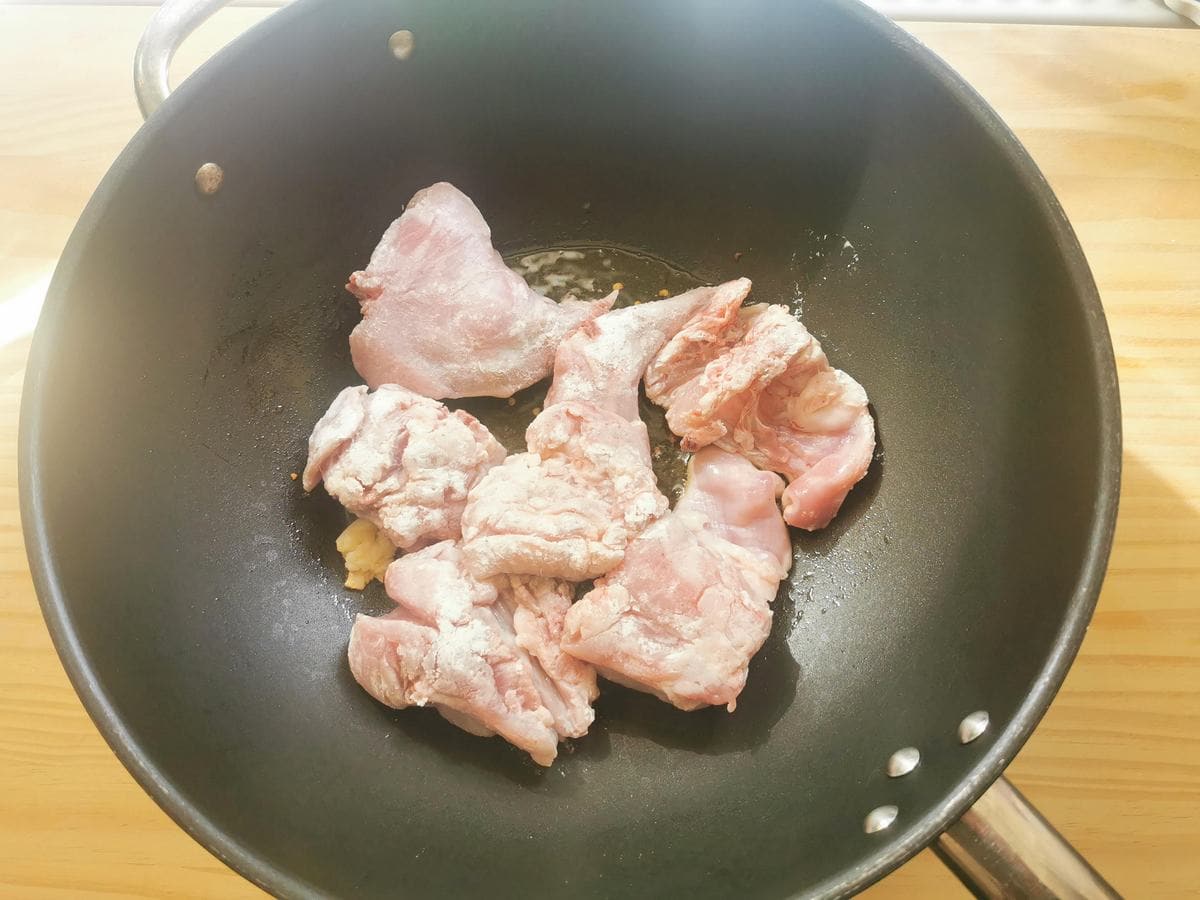
Other ingredients
Apart from the abovementioned main ingredients, this pasta with braised rabbit ragu calls for salt (for pasta cooking and seasoning), olive oil to cook the rabbit and black pepper to season the finished sauce.
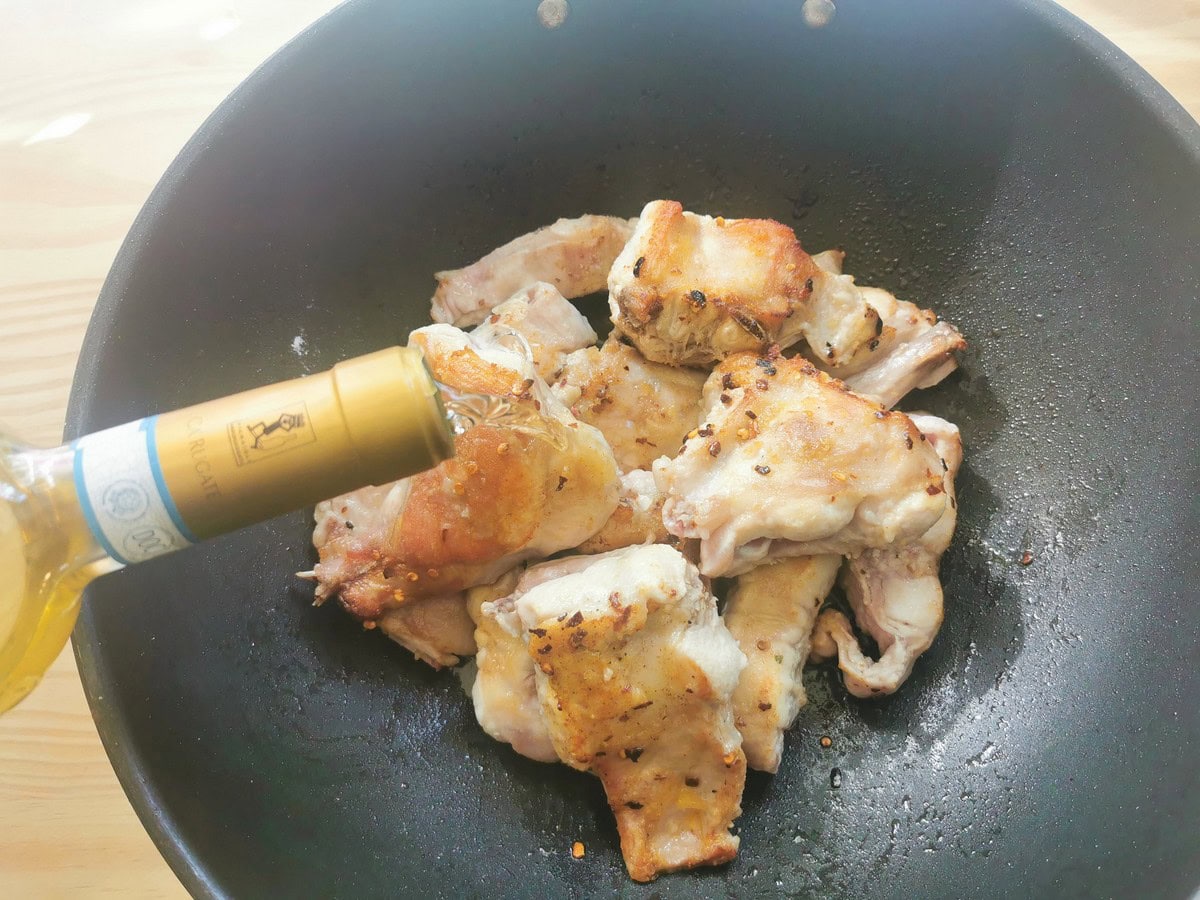
What pasta should you use?
As I mentioned before, this pasta with rabbit dish is normally served with bucatini. For those who don’t know it, bucatini is a long pasta very similar to spaghettoni, meaning large spaghetti, but bucatini is hollow. which
Some Italians say bucatini is a great pasta for hearty or creamy sauces as the sauce actually gets inside the pasta strands. I’m not sure that the sauce really gets inside, unless you suck the bucatini like a straw (yes! you can, but be warned it’s messy!)
Of course, you can also use other pasta. Long types such as spaghetti or bigoli would work well, as would ziti which is also hollow, or short pasta such as fusilli or penne.
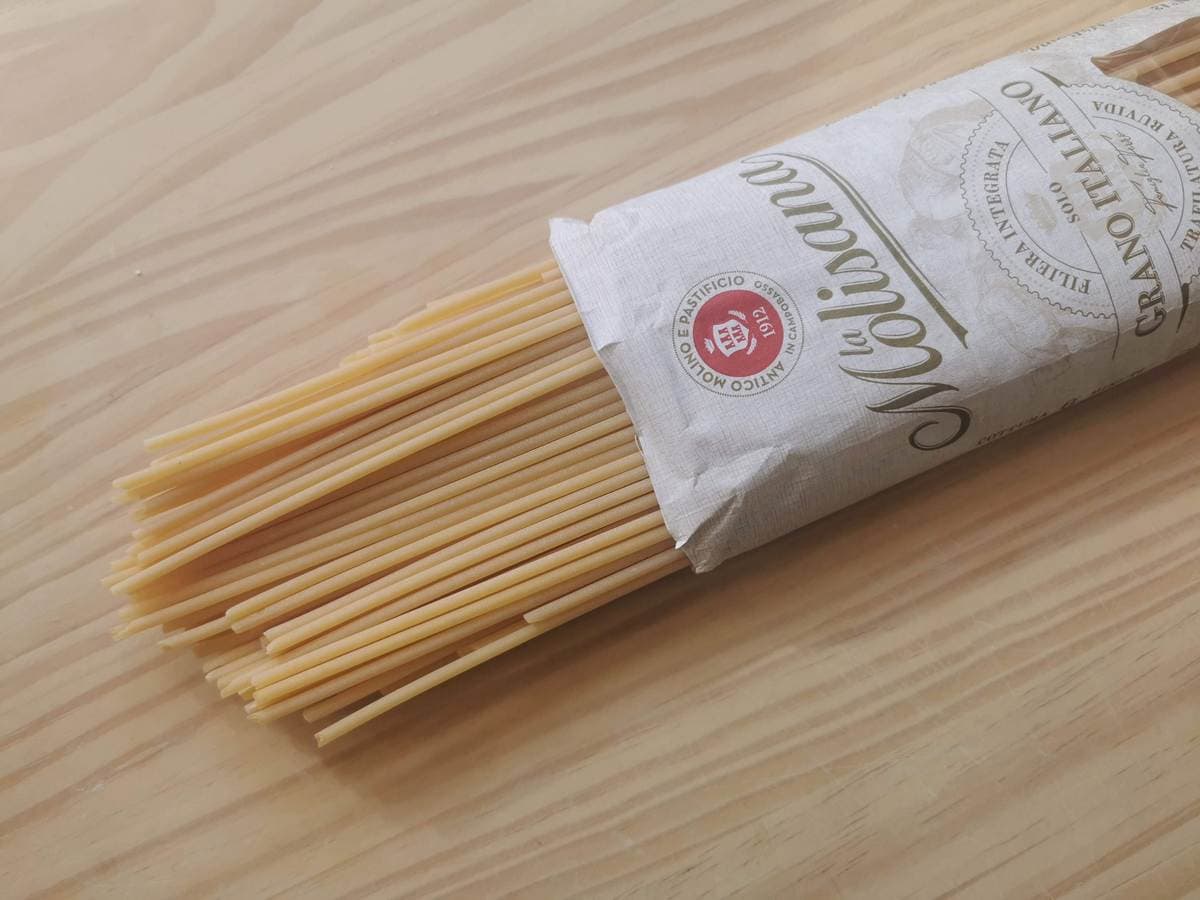
Rabbit meat is good for you.
My hubby isn’t a great fan of rabbit but he devoured this dish! I personally like rabbit. It’s a ‘healthy’ meat, low in fat, high in protein (more than beef or chicken) and has a high concentration of iron and other minerals. In addition, it’s low in calories and when cooked well rabbit can be really tender and tasty (like in this pasta with braised rabbit recipe!!)
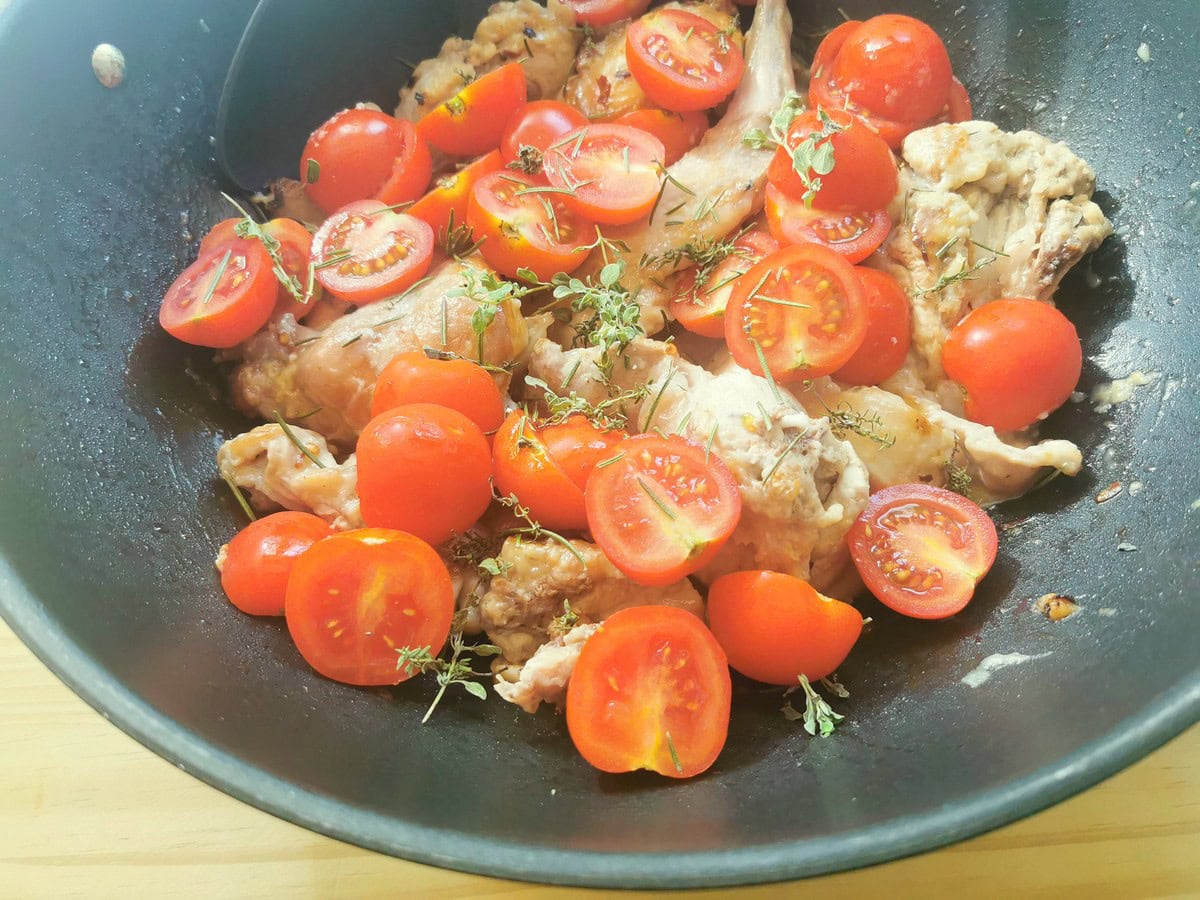
Step by step instructions for pasta with braised rabbit.
1) Marinate the rabbit pieces in 200ml white wine for at least 2 hours or overnight. Then drain and pat dry with kitchen paper ( I also added some rosemary and thyme to the wine). Next roll the rabbit in flour seasoned with salt and pepper.
2) Wash the tomatoes and halve them. Peel the garlic cloves and wash the fresh herbs. Fresh sprigs of rosemary and thyme or marjoram can be kept whole, the parsley needs to be chopped.
3) Heat the olive oil in a heavy bottom skillet or saucepan. Add the garlic cloves and peperoncino and sauté for a minute or two until the garlic is lightly golden. Then add the floured rabbit pieces.
4) Fry the rabbit on both sides until golden brown, then remove the garlic cloves and add some white wine. Allow the alcohol to evaporate a little and then cover and simmer the rabbit in the wine for 15 minutes over a medium heat. Turn the rabbit pieces and continue to simmer covered for another 15 minutes.
NB You can use wine from the marinade but I prefer to add fresh wine.
5) Add the cherry tomato halves, thyme or marjoram and rosemary, plus salt and pepper to taste and continue cooking uncovered for a few minutes until the tomatoes start to soften.
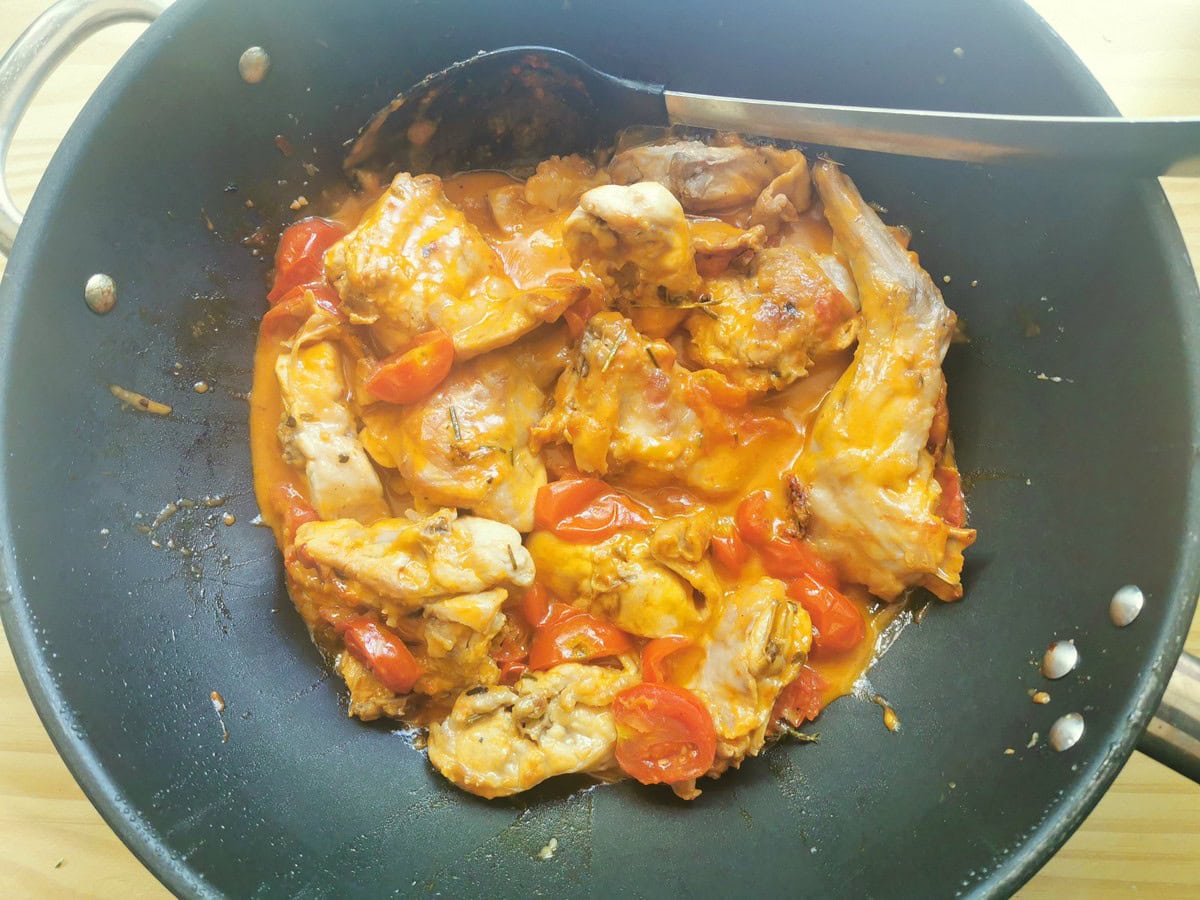
6) Cover and let cook until the meat is done (another 15-20 minutes), adding a bit more wine as necessary to keep it from drying out and to obtain a nice sauce for the pasta.
Cook the pasta, finish and serve.
7) Put a pot of water on to boil for the pasta. Add salt once it starts to boil and bring to a boil again.
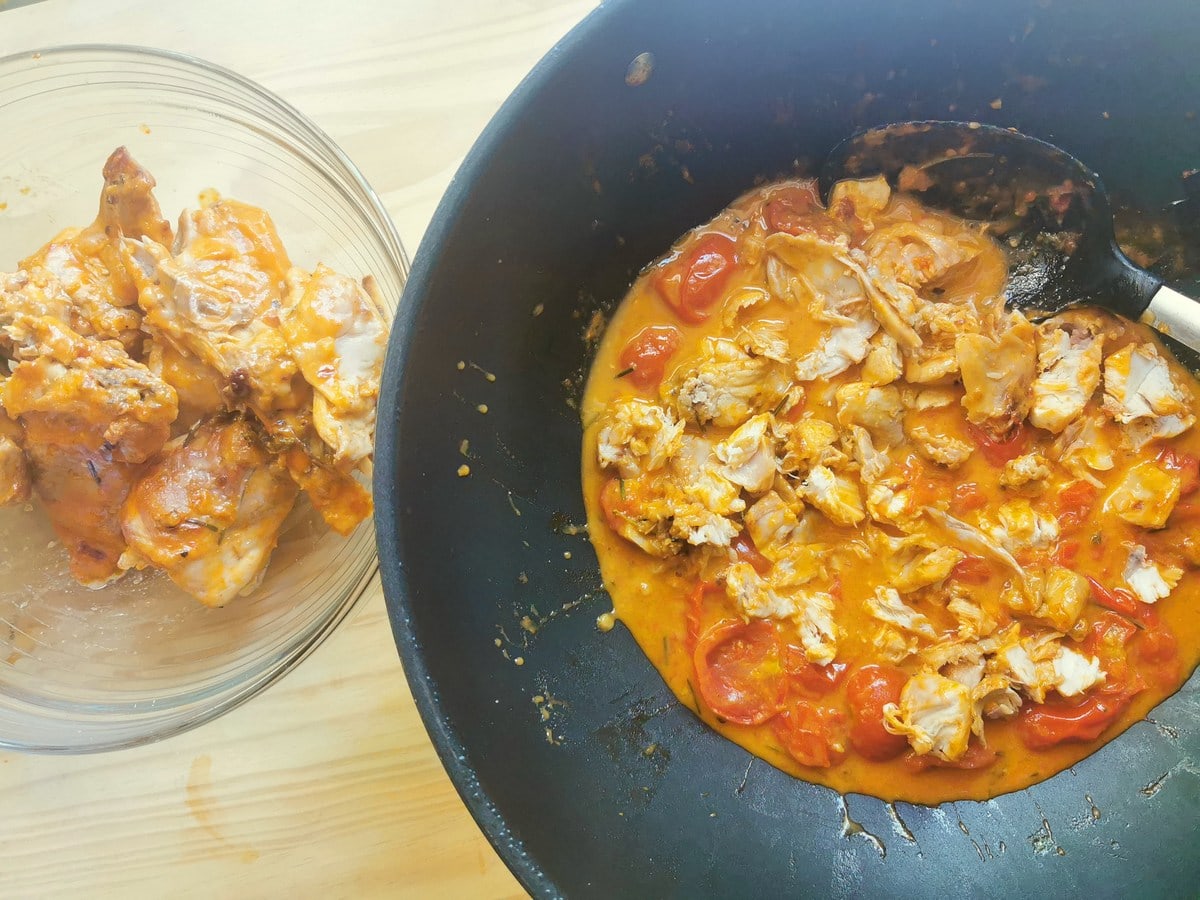
8) Remove the rabbit pieces from the pan to a plate and either keep it all warm to serve separately with potatoes, or remove the meat from half or some of the rabbit pieces, chop it finely and add back into it the sauce.
9) Cook the bucatini al dente according to the instructions on the packet. When ready, save a cup of the cooking water and drain.
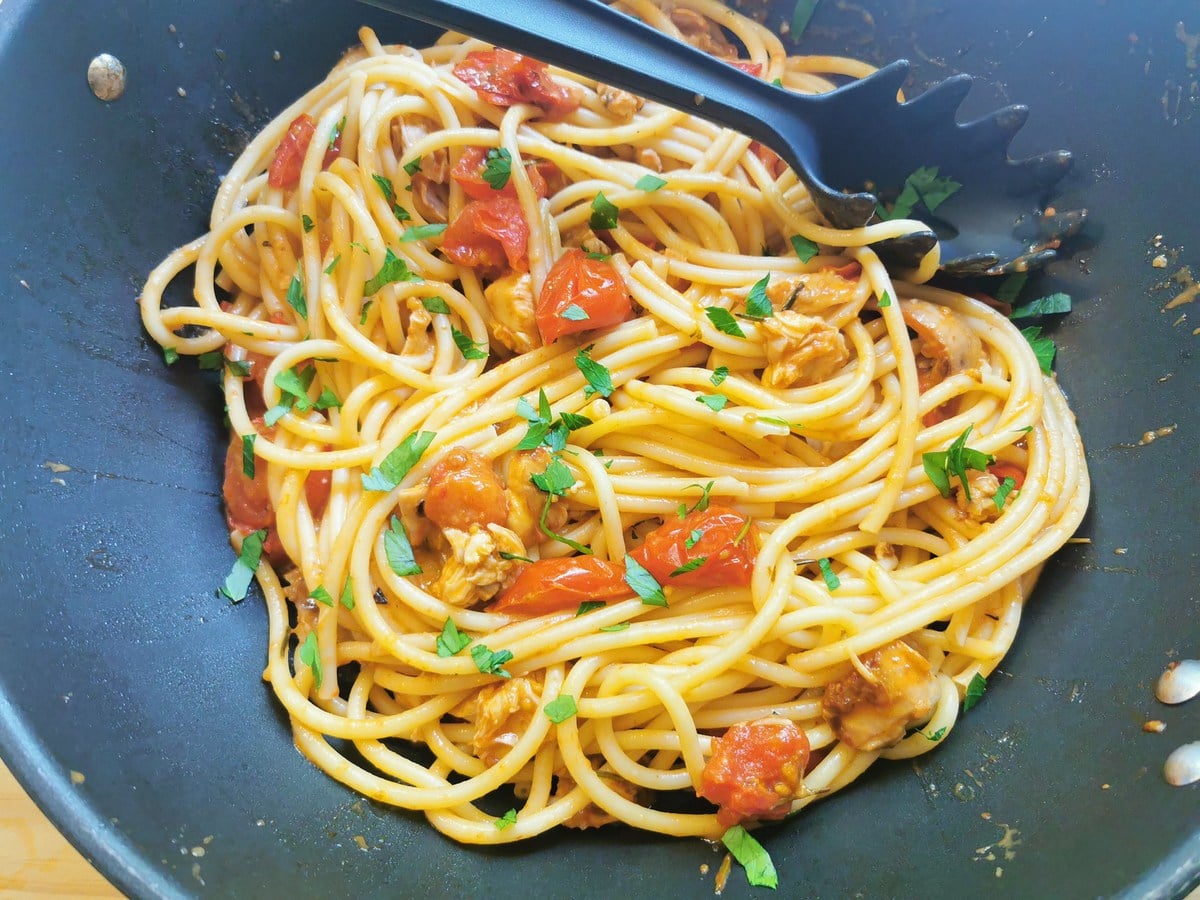
10) Add some of the pasta cooking water to the sauce if it seems dry then add the bucatini pasta and mix everything together well so that the pasta gets coated in the sauce. Finally add the chopped fresh parsley.
Serve immediately with extra pieces of rabbit if you aren’t planning another course or to use the cooked rabbit another time.
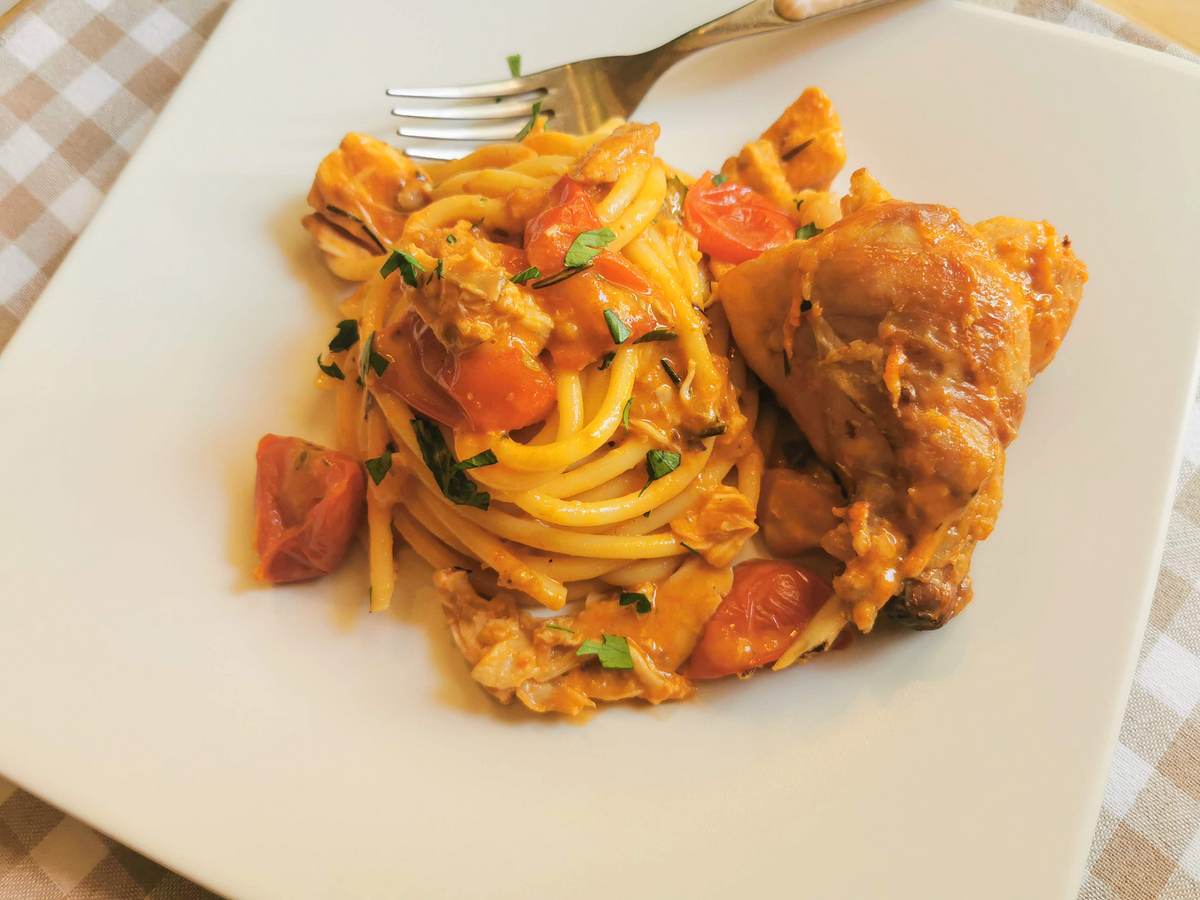
What to do with leftovers.
If you have leftover bucatini pasta with braised rabbit ragu you can keep it in an air-tight container in the fridge for up to 3 days. Reheat leftovers in the microwave or bake them with a sprinkling of pecorino on top.
Leftover braised rabbit pieces can be frozen in a freezer friendly container for up to 3 months. defrost before reheating.
Let me know what you think.
If you like eating rabbit, you’ll love this recipe. If you’ve never tried rabbit and would like to, I think this would be a great dish to start with. Do let me know if you try this Ischian bucatini pasta with braised rabbit recipe. You can write a comment here on the blog, email me or comment on the Pasta Project Facebook page. I’d love to hear from you.
Buon appetito!
Other pasta with game recipes to try.
Pin for later.
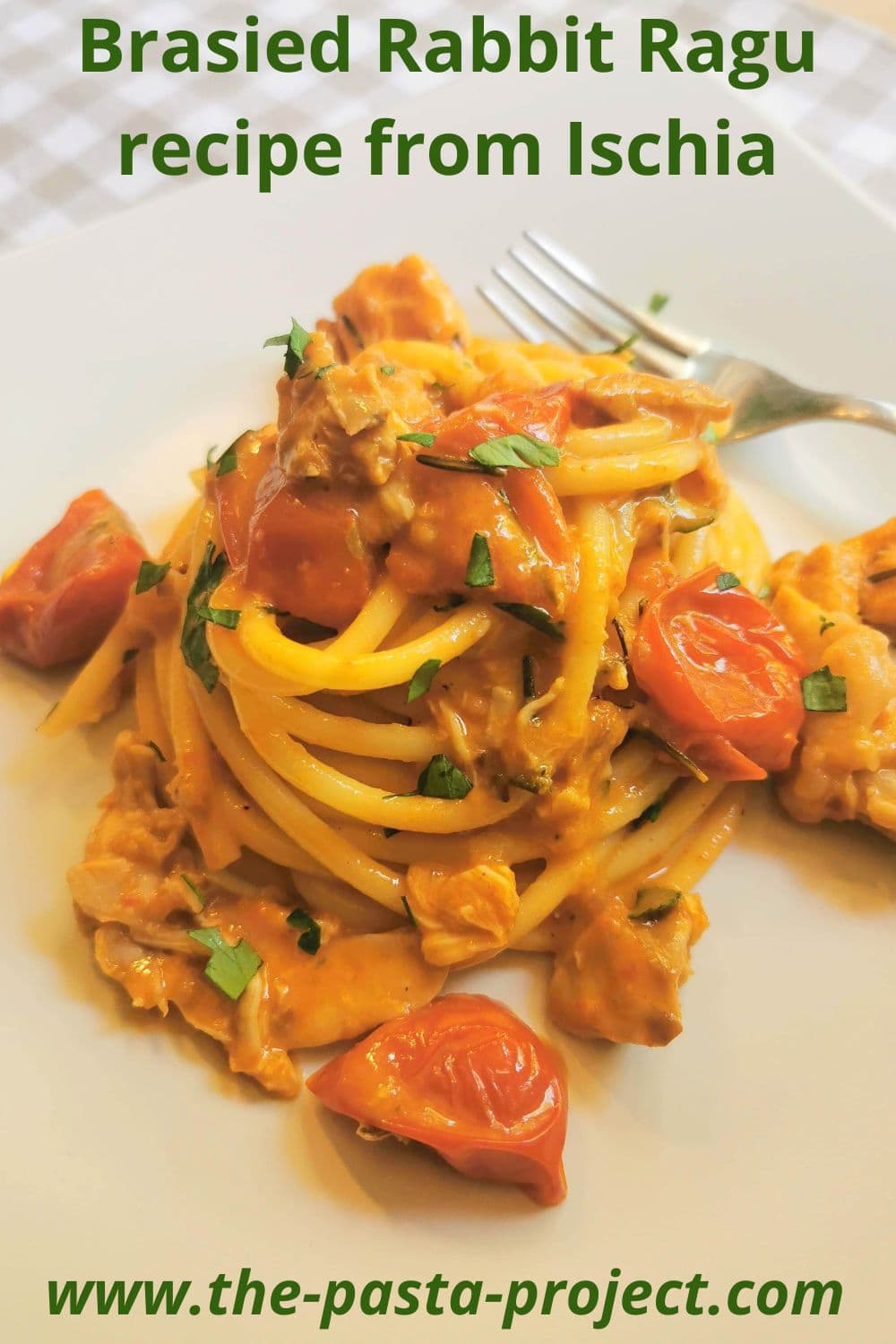
Reader Interactions

